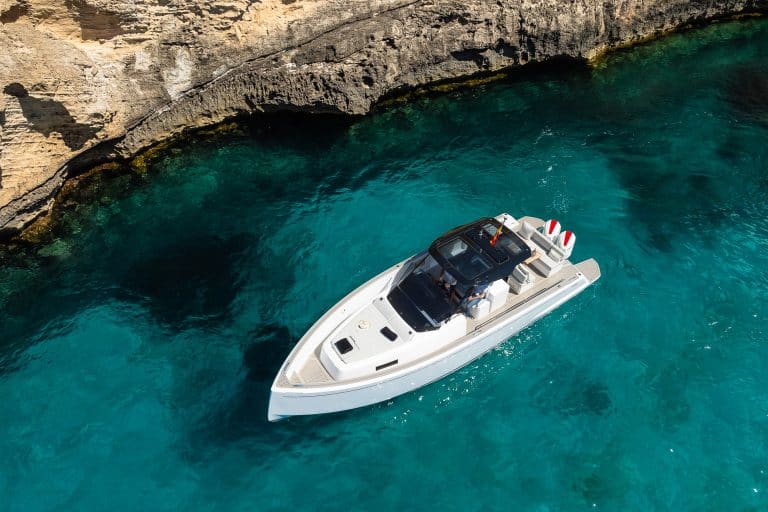As humanity has explored the oceans, the need arose to establish norms and regulations to guide interactions in seas and oceans: Maritime Law.
This regulatory body has played a crucial role in safeguarding both public and private interests, adapting to transformations in vessels, trade routes, and contemporary challenges on the high seas. From historical treaties to national and international codes and conventions, Maritime Law has evolved over time to facilitate peaceful coexistence and prosperity in the maritime environment.
Since 1984, Motyvel Group has been the best ally for exploring the nautical world with confidence and excellence. We understand that for sea lovers, safety is paramount. Therefore, gaining more knowledge about Maritime Law will help you feel safer on the high seas.
History of Maritime Law
The roots of Maritime Law trace back to ancient times. Maritime communities, aware of the challenges and inherent risks of navigation, began drafting regulations to govern their interactions at sea.
Two historical milestones have marked the origin of Maritime Law. In the 12th century, the island of Olerón, located in the Bay of Biscay, became an important maritime center. There, the Oleron Treaty originated, a document that compiled and established rules related to trade and navigation. This medieval treaty focused on crucial aspects such as maritime salvage and liability in case of damages.
Subsequently, in the 14th century, in England, the Black Book of the Admiralty emerged. This legal compendium became a reference for maritime regulations in medieval Europe. It established new rules on salvage, maritime trade, and jurisdiction, thus contributing to the development of Maritime Law.
Consolidation
Over time, states began to consolidate their own national codes of Maritime Law, seeking to provide a more structured and coherent legal framework for maritime activities within individual jurisdictions.
However, given the idiosyncrasy of navigation and maritime trade, the need for international standards was evident. Thus, a series of international conventions emerged, acting as fundamental pillars in the evolution of Maritime Law. Some of these include the Brussels Convention of 1924, the Convention on Limitation of Liability of 1976, and the International Convention on Maritime Liens and Mortgages of 1993.
What is Maritime Law?
Maritime Law, also known as Admiralty Law, is the legal discipline that manages activities in the marine environment. Essentially, Maritime Law establishes the rules and regulations that govern the conduct of individuals and entities involved in maritime activities, from the operation of ships and vessels to the contracting of transportation services and international trade.
One of the most notable aspects of Maritime Law is its role in dispute resolution. In cases of conflicts arising during navigation, maritime trade, or expeditions, this legal body provides the necessary mechanisms and procedures to address and peacefully resolve such controversies. Additionally, in situations of injuries or accidents on the high seas, Maritime Law plays a crucial role in establishing responsibilities and defining adequate compensation for the parties involved.
Maritime Law also deals with safeguarding the marine environment. It establishes regulations aimed at preventing pollution, controlling waste discharges, and protecting marine biodiversity. In a broader context, Admiralty Laws are fundamental for peaceful coexistence in the oceans and seas of the world. By providing a clear and equitable legal framework, they promote international cooperation and contribute to the sustainable development of maritime activities.
Basic Principles of Maritime Law
There are a series of principles that form the normative basis to guide interactions in the maritime environment and establish a fair and equitable legal framework for activities in the world’s oceans and seas. These principles are:
Freedom of navigation
Ensures the freedom of ships to transit through international waters without restrictions. Guaranteeing this right promotes maritime trade, global connectivity, and exploration, contributing to an efficient and barrier-free transportation system.
Maritime jurisdiction
Establishes the legal competencies and authority of states at sea. This encompasses everything from dispute resolution to the enforcement of laws in territorial waters.
Maritime salvage
This principle reflects the shared responsibility of the maritime community in emergency situations. It establishes protocols for mutual assistance between ships and ensures a coordinated response in cases of shipwrecks or other maritime emergencies.
Protection of the marine environment
This principle establishes regulations to prevent pollution, control discharges, and protect marine biodiversity. It thus contributes to sustainability and the maintenance of environmental quality in the oceans.
Right of innocent passage
Defends the conditions under which foreign vessels can traverse territorial waters, avoiding conflicts and ensuring mutual respect between nations.
Key Aspects of Maritime Law
Maritime Law, as a legal discipline, encompasses various crucial aspects that define and regulate activities in the marine environment. These interconnected aspects form the legal framework guiding everything from the formalization of contracts for the transportation of goods to the safeguarding of lives and the preservation of the environment through safety regulations and maritime insurance.
Maritime transportation contracts
These regulate the leasing, chartering, and transportation of goods by sea. They define the terms and conditions under which transportation takes place, establishing the rights and obligations of both the shipowner and the shipper. Clarity in these contracts is essential to prevent disputes and ensure efficient commercial transactions.
Maritime insurance
It constitutes a key component in managing risks associated with maritime transportation. It provides financial protection to the parties involved in case of losses, damages, or unforeseen events during the transportation of goods. The existence of maritime insurance contributes to financial stability and facilitates the continuity of commercial operations in the maritime domain. You can obtain one of Motyvel Group’s insurances to safeguard against possible losses at sea.
Maritime safety
This aspect of Maritime Law focuses on establishing standards and regulations to prevent accidents and ensure safe conditions in the marine environment. It includes measures for collision prevention, maintaining shipbuilding standards, crew training, and emergency response.
Conclusion
Navigation, maritime trade, and expeditions on the high seas have found in Maritime Law an essential guide throughout history. For safety at sea and smooth navigation, it is essential to understand the foundations of this legal branch.
In this context, Motyvel Group presents itself as a reliable ally for sea lovers, sharing its expertise on the importance of understanding and respecting maritime laws. Exploring the maritime world, whether through buying, selling, or maintaining vessels, becomes a safer and more satisfying journey thanks to the knowledge and dedication of Motyvel Group. Contact us and sail with the support of an industry leader in maritime matters.






